How Will AI Change the Film and Music Industry
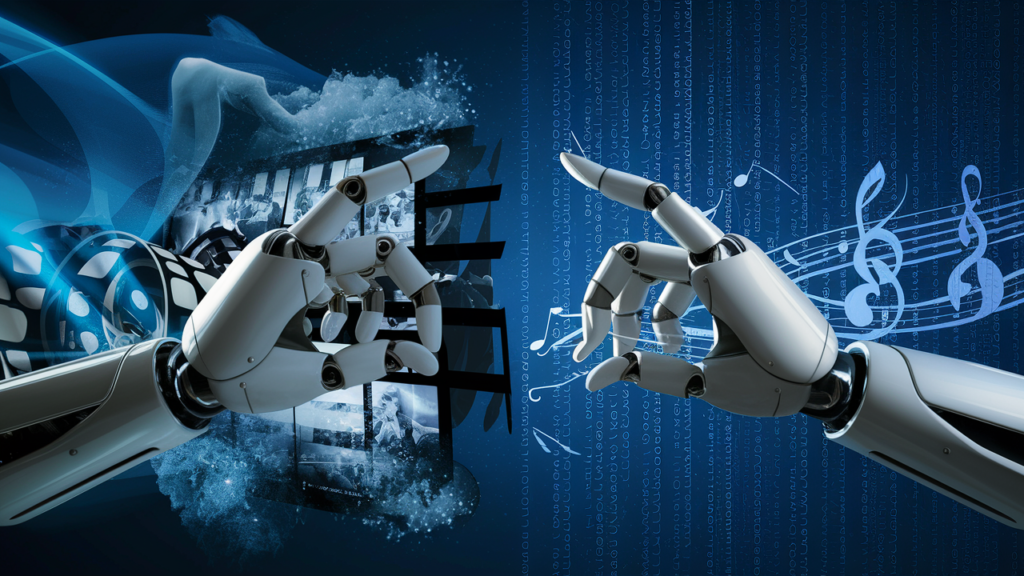
The integration of Artificial Intelligence (AI) into the film and music industries signifies a pivotal shift, poised to redefine creative processes and audience experiences. From scriptwriting enhanced by AI’s ability to analyze narrative structures to the nuanced application of AI in music composition, these advancements promise to accelerate production timelines and introduce novel forms of storytelling and soundscapes.
Yet, as we stand on the cusp of these transformations, it begs the question of how these technologies will impact the roles of traditional artists and the authenticity of creative outputs. Unraveling the implications of AI’s ascent in these sectors reveals a complex interplay between innovation and the essence of human creativity.
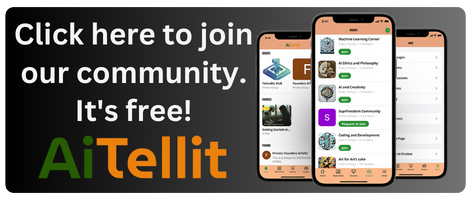
AI in Scriptwriting and Composition

The advent of artificial intelligence in scriptwriting and composition marks a transformative era in the film and music industries, offering unprecedented tools for enhancing narrative depth and musical originality. AI’s integration into scriptwriting is reshaping storytelling by analyzing data from successful movies to suggest engaging plot points and character reactions, thereby fine-tuning scripts to captivate specific audience segments. Tools like ChatGPT and Bard have emerged as pivotal in crafting personalized narratives, enabling writers to explore a wider range of themes and emotional arcs with precision and creativity.
In the realm of music composition, AI extends its influence by generating original music tailored to fit specific moods and scenes, thus broadening the spectrum of creative possibilities. This capability not only augments the emotional resonance of films and music but also streamlines the composition process. By offering suggestions for unexpected plot twists and optimizing music creation, AI enhances efficiency, paving the way for innovative storytelling and soundscapes that were previously unimaginable. Consequently, the film and music industries stand on the cusp of a revolution, with AI unlocking new avenues for artistic expression and narrative sophistication.
Revolutionizing Editing and Post-Production
In the realm of film and music production, AI-driven advancements are revolutionizing the editing and post-production processes, enhancing both creativity and efficiency. These technologies streamline workflows, allowing editors to execute quick, cost-effective last-minute changes. By recognizing faces and emotional cues, AI tools optimize the editing process, ensuring that every frame contributes effectively to the narrative’s emotional depth and visual appeal. This capability not only improves the detail and quality of the final product but also significantly enhances editing efficiency.
Moreover, AI-driven insights empower editors to create more captivating content by leveraging data-driven strategies for narrative and visual storytelling. This elevates the overall impact of films, making them more engaging to audiences. Another transformative aspect of AI in post-production is real-time rendering, which greatly enhances collaboration among creative teams. This feature allows for instant feedback and iterative adjustments, making the creative process more dynamic and interactive.
The integration of AI in film editing and post-production not only enhances creative control but also addresses the limitations posed by inflexible pre-production processes. By offering editors the tools to refine and redefine their work with unprecedented precision and flexibility, AI technologies are setting a new standard for creativity and efficiency in the film industry.
Impact on Talent and Creativity
AI is revolutionizing the landscape of talent and creativity in the film and music industries by offering tools that expand the boundaries of conventional storytelling and composition. These advancements are not just altering the way content is produced but also how talent is evaluated and creativity is fostered.
Here are four key impacts of AI on talent and creativity:
- AI Tools and Storytelling: AI algorithms can suggest novel plot twists and personalized narratives, making storytelling more engaging and tailored to diverse audiences.
- Digital Characters and Actors: The creation of digital characters with realistic body replicas opens new avenues for actors, allowing them to portray roles that were previously impossible due to physical limitations.
- Music Composition: AI-powered tools aid in the music composition process, enabling composers to generate original scores that perfectly match the mood and scene of films, thus enhancing the overall emotional impact.
- Talent Evaluation: AI’s analytical capabilities improve talent evaluation by analyzing actors’ past performances and potential for future roles, leading to more informed casting decisions.
These developments underscore a transformative period where AI enhances the creative process, offering new possibilities for innovation in film and music production.
Challenges and Ethical Considerations
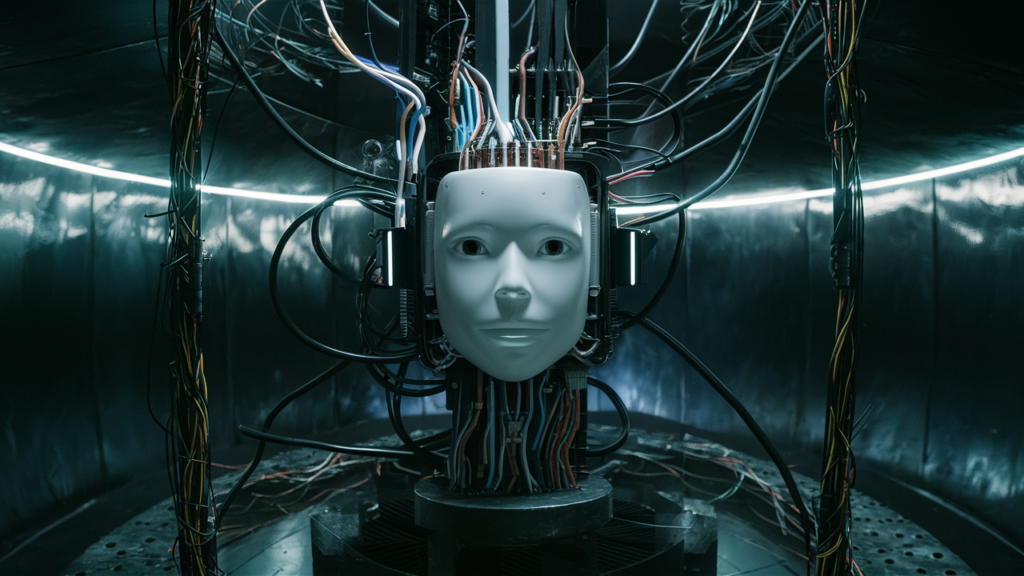
Navigating the complexities of ethical implications, the film and music industries face significant challenges as they integrate artificial intelligence into their creative and production processes. The balance between harnessing AI’s potential for innovation and addressing ethical considerations is delicate, necessitating a deep dive into the implications of these technological advancements.
| Challenge | Consideration |
|---|---|
| Digital Replicas | Creating digital likenesses raises ethical questions about consent and the posthumous use of an actor’s image. |
| Uncanny Valley | AI-generated content can lack the human touch, potentially diminishing creative depth and emotional connection. |
| Job Displacement | The automation of certain production tasks by AI technologies poses a threat to traditional jobs in the industry. |
| Moral Considerations | Balancing technological advancements with ethical guidelines to prevent manipulation and maintain authenticity in storytelling. |
| Regulation and Guidelines | Establishing frameworks to navigate the ethical dilemmas of AI integration and ensure its responsible use. |
As the film and music industries continue to evolve with AI, it’s imperative to consider these ethical challenges. Striking a balance between leveraging AI for its vast capabilities while retaining the indispensable human touch and creative depth will be crucial. The journey ahead involves not just embracing AI’s potential but also navigating its ethical landscape thoughtfully.
Future Trends and Predictions
As we look towards the horizon, it becomes evident that artificial intelligence is set to profoundly shape the future landscape of the film and music industries by introducing groundbreaking methods for content creation and audience engagement. The fusion of technology and creativity through AI not only enhances the efficiency of production workflows but also opens up vast opportunities for creative exploration.
Here’s what we can anticipate:
- Enhanced Creative Processes: AI will revolutionize film scoring and sound design, allowing for the creation of unique soundscapes in collaboration with composers, thereby enriching the storytelling experience.
- Personalized Content Creation: Through data analysis, AI will tailor content to individual preferences, offering more engaging and immersive experiences for audiences.
- Innovative Storytelling Techniques: The integration of AI in storytelling will lead to novel narrative structures, character development, and virtual production methods, pushing the boundaries of creativity.
- Streamlined Production Workflows: AI’s ability to automate tedious tasks will significantly improve the efficiency of production processes, enabling creators to focus more on the creative aspects of film and music production.

Frequently Asked Questions
How Will AI Affect the Film Industry?
AI’s integration into the film industry is set to revolutionize content creation, from script analysis to visual effects and sound design, enhancing creativity, streamlining production processes, and potentially altering traditional filmmaking and distribution models significantly.
How Will Artificial Intelligence Change the Music Industry?
Artificial Intelligence is set to revolutionize the music industry by automating composition, enhancing sound quality, and streamlining production processes, thereby expanding creative possibilities and improving efficiency in music creation and distribution.
How Will AI Affect the Media Industry?
AI’s influence on the media industry will manifest through enhanced content personalization, optimized marketing strategies, and innovative content creation methods, ultimately driving a more engaging and tailored consumer experience while streamlining production and distribution processes.
How Will AI Change the Industry?
AI is set to fundamentally transform industries by automating processes, enhancing creativity, and optimizing efficiency. Its impact on content creation, from scriptwriting to music composition, promises a future marked by innovation and unprecedented levels of personalization.
Conclusion
In conclusion, the integration of Artificial Intelligence into the film and music industries signifies a monumental shift towards more efficient, innovative, and personalized creative processes. By transforming scriptwriting, composition, editing, and post-production, AI enhances the artistic landscape, offering new avenues for expression and collaboration.
However, it also presents challenges and ethical considerations that necessitate careful navigation. As these technologies evolve, they promise to further revolutionize these sectors, driving a new era of creativity and redefining the boundaries of human and machine collaboration in art.




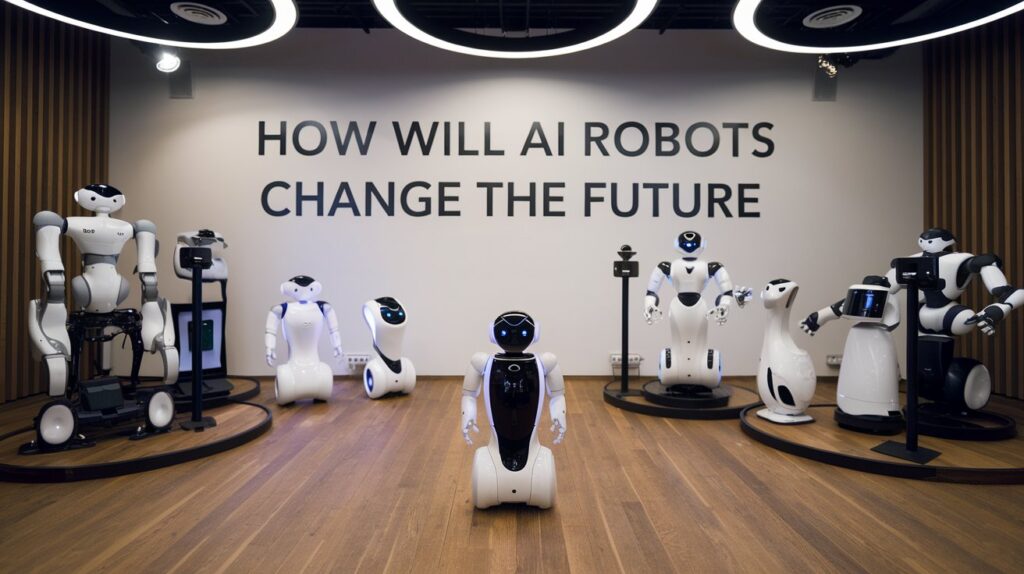

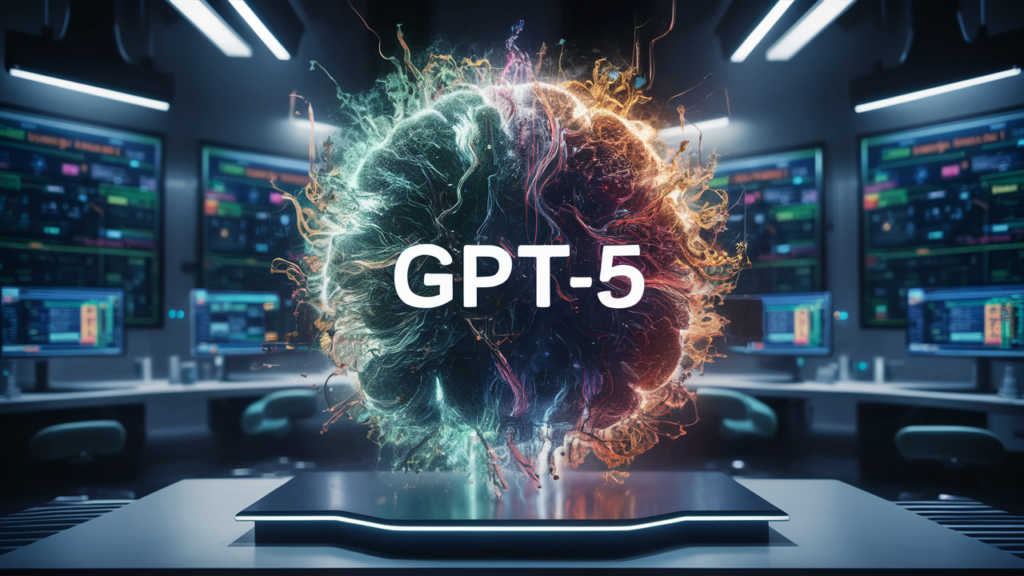
Responses